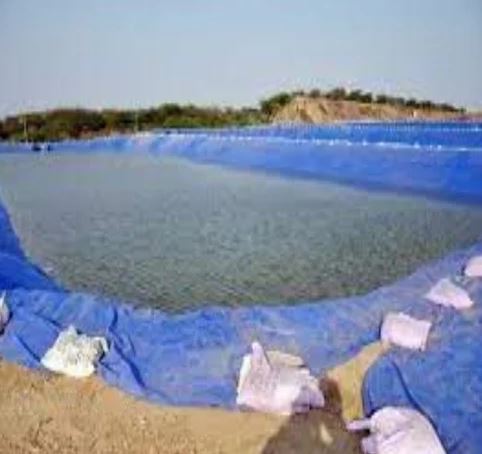High-Density Polyethylene (HDPE) sheets are a versatile and essential material in various industries. Known for their high strength-to-density ratio, durability, and resistance to moisture and chemicals, HDPE sheets are widely used in construction, packaging, agriculture, and many other sectors. This guide delves into the many benefits, uses, and applications of HDPE sheets, providing a thorough understanding of why this material is so valuable.
What are HDPE Sheets?
Definition and Composition
HDPE is a thermoplastic polymer made from petroleum. It is known for its high strength-to-density ratio, which means it is both strong and lightweight. HDPE sheets are produced through the polymerization of ethylene, resulting in a material that is resistant to impact, weather, and chemicals.
Key Properties of HDPE Sheets
- High Strength: Despite being lightweight, HDPE sheets are incredibly strong and can withstand significant stress and impact.
- Chemical Resistance: HDPE is resistant to many chemicals, making it ideal for use in environments where chemical exposure is a concern.
- Weather Resistance: HDPE sheets can withstand harsh weather conditions, including UV radiation, without degrading.
- Moisture Resistance: HDPE is impervious to moisture, preventing water damage and making it suitable for outdoor applications.
- Recyclability: HDPE is a recyclable material, contributing to its popularity in sustainable practices.
Benefits of HDPE Sheets
Durability and Longevity
HDPE sheets are highly durable, providing long-term performance in various applications. Their resistance to impact, chemicals, and weather conditions ensures that they maintain their structural integrity over time.
Versatility
The versatility of HDPE sheets allows them to be used in a wide range of industries. They can be easily cut, welded, and molded into different shapes and sizes, making them suitable for custom applications.
Cost-Effectiveness
HDPE sheets offer a cost-effective solution for many applications. Their durability reduces the need for frequent replacements, and their lightweight nature reduces transportation and installation costs.
Environmental Benefits
Being a recyclable material, HDPE sheets contribute to environmental sustainability. They can be reprocessed and reused, reducing waste and promoting eco-friendly practices.
Common Uses of HDPE Sheets
Construction and Building Materials
HDPE sheets are extensively used in the construction industry for various applications:
- Ground Stabilization: HDPE sheets are used to stabilize the ground in construction sites, preventing soil erosion and providing a stable base for heavy machinery.
- Protective Barriers: They are used as protective barriers to shield structures from moisture, chemicals, and physical impact.
- Roofing: HDPE sheets are used in roofing applications due to their weather resistance and durability.
Agriculture
In agriculture, HDPE sheets play a crucial role in enhancing productivity and protecting crops:
- Greenhouse Linings: HDPE sheets are used as linings in greenhouses to control temperature and humidity, creating an optimal growing environment.
- Water Management: They are used in irrigation systems and water storage tanks, ensuring efficient water management and reducing waste.
Packaging and Storage
HDPE sheets are widely used in the packaging industry due to their strength and moisture resistance:
- Food Packaging: HDPE is safe for food contact, making it ideal for packaging food products, ensuring they remain fresh and protected.
- Industrial Packaging: HDPE sheets are used to create durable packaging for industrial goods, protecting them during transportation and storage.
Automotive Industry
The automotive industry utilizes HDPE sheets for various components:
- Fuel Tanks: HDPE’s chemical resistance makes it ideal for fuel tanks, preventing leaks and corrosion.
- Vehicle Interiors: HDPE sheets are used in the interiors of vehicles for their durability and aesthetic appeal.
Recreational Applications
HDPE sheets are also used in recreational and consumer goods:
- Playground Equipment: The durability and safety of HDPE make it suitable for playground equipment, ensuring a safe environment for children.
- Marine Applications: HDPE is used in the construction of boats and marine structures due to its resistance to water and UV radiation.
Advanced Applications of HDPE Sheets
Geomembranes
HDPE sheets are used in geomembrane applications for lining landfills, ponds, and canals. Their impermeability prevents contamination of soil and water, making them essential for environmental protection.
Pipe Systems
HDPE is a preferred material for pipe systems in various industries, including water supply, gas distribution, and sewage systems. Its flexibility, durability, and resistance to corrosion make it an ideal choice for these applications.
Chemical Tanks
HDPE sheets are used to construct chemical tanks and containers due to their excellent chemical resistance. These tanks are used in industries such as agriculture, pharmaceuticals, and manufacturing.
How to Work with HDPE Sheets
Cutting and Shaping
HDPE sheets can be easily cut and shaped using standard woodworking tools. For more precise applications, CNC machines and laser cutters can be used.
Welding
HDPE sheets can be welded together using hot air welding, extrusion welding, or butt fusion welding techniques. This allows for the creation of complex structures and custom shapes.
Maintenance and Cleaning
HDPE sheets require minimal maintenance due to their resistance to chemicals and weathering. Cleaning can be done with mild detergents and water, ensuring long-lasting performance.
Conclusion
HDPE sheets are a versatile and reliable material with a wide range of applications across various industries. Their durability, cost-effectiveness, and environmental benefits make them an excellent choice for numerous projects. Whether used in construction, agriculture, packaging, or advanced applications, HDPE sheets offer unmatched performance and value.

